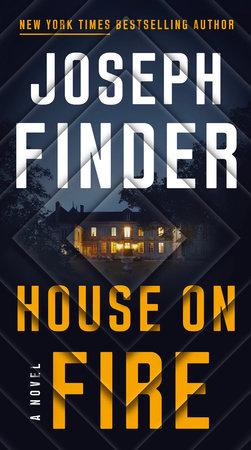The Fine Art of Feedback
Tips for Writers
 As we get closer and closer to publication date, I get more excited about finally putting my book in readers’ hands. There’s nothing like that excitement of seeing people read something I wrote, and few professional endeavors ever pay off with such a visible reward.
As we get closer and closer to publication date, I get more excited about finally putting my book in readers’ hands. There’s nothing like that excitement of seeing people read something I wrote, and few professional endeavors ever pay off with such a visible reward.
Yet there’s a certain amount of nervousness, too, a kind of stage fright. Even after having published nine books (eight novels), I still feel it. I’ve learned the truth of Edna St. Vincent Millay’s remark, “A person who publishes a book willfully appears before the populace with his pants down. If it is a good book nothing can hurt him. If it is a bad book nothing can help him.”
I’ve come to value criticism. But I admit, I used to take umbrage, I used to be offended or even hurt — until I realized that anything that doesn’t kill me makes me stronger, and that criticism/feedback/suggestions are the way my work gets better. Now I value it. Getting mad at criticism is like getting mad at a friend for giving you honest advice when you asked for it. Don’t get mad at criticism. Be grateful.
We write to be read. We write for readers, not merely for ourselves, just as the village storyteller in the old days would refine and improve his stories by noticing what made people yawn and what made them jump or gasp or smile. Any person or business interested in producing a quality product goes looking for feedback, the way Hollywood holds test screenings or Coke does market testing. Good feedback is about making the end product better.
But every writer – every artist – struggles with this, so I thought I’d spend some time discussing the issue of how best to solicit and process feedback.
Let me start by saying that my ability to change something in a book, once it’s published, is minimal. Unless a book is libelous or dangerous, a publisher won’t pull it off the shelves to correct it, and even the ability to make changes between one printing and the next is pretty limited. Once the galley proofs leave my office, the book’s pretty well locked. So I have to make sure that what my publishers get is the best version of the book I can give them, and that involves asking for and processing a great deal of feedback before I turn the book in. But the criticism I get on one book does help me write future books, because I’m constantly trying to improve, and writers learn to write each new book as they go.
Ten Tips for Soliciting and Processing Feedback – Plus One
- Don’t ask for feedback on material that’s not ready. Writing, in this sense, is like cooking. There’s no point in asking someone to taste a dish before you’ve finished cooking it, and there’s rarely any point in asking someone to read a work before you’re happy with it. The one exception might be when you know something is missing, but can’t figure out what it is – “What does this soup need?” – and in these cases, writers’ workshops can be useful. Two corollaries to this are: 1a) Don’t let your friends/spouse/parents/etc. read your drafts before the work is ready and 1b) Don’t ask people to read the same material more than once, unless they ask to do so.
- Don’t give everyone’s feedback the same weight. The opinion of some is more valuable than others. Criticism from my editor or my agent, for example, is like taking a watch in for repairs; my editor and agent have specialized knowledge and an understanding of my work over time. Other criticism might not be as meaningful to me. How do I know which feedback to pay attention to? It’s a gut instinct, something that tells me how carefully someone’s read the book, how well they understood what I was trying to do, and whether they have a valid opinion about whether I succeeded.
On this subject, while it’s nice to get good reviews, I don’t learn as much from them as I do from other sources of feedback. Reviews seldom give me much new information; I’ve lived with the book longer than any reviewer has. I already know all the strengths and weaknesses. I’m like a carpenter — I know where the joints are, where the cracks are. You can’t look for validation from critics. The only thing that counts is your audience, whether they buy your books and keep buying them and recommend them to their friends, because that tells you whether you’re entertaining people. I’m not writing for critics; I’m writing for readers. I’m writing to entertain.
- Don’t expect feedback – especially from reviews — to give you solutions. Hollywood holds test screenings in front of focus groups, surveying the audience for their reactions. I think of criticism in much the same way. At these screenings, producers ask the audience members what they liked and what they didn’t; they don’t ask for suggestions at how to fix the movie. That’s the filmmakers’ job. When Paramount screened the great thriller Fatal Attraction for test audiences, they hissed when Alex Forrest (the wacko played by Glenn Close) killed herself at the end. They wanted her to get her comeuppance. So Paramount changed the ending. If you’ve seen it, you know what happened. (If you haven’t seen it, you should). Was it wrong for Paramount to change the ending based on a test screening’s reaction? I don’t think so. The changed ending is far more satisfying – not just to me, but to the many millions who loved that movie. Anyway, the test screeners didn’t tell Paramount how to change the ending. All they did was tell the studio they didn’t like the ending. The writers and producers had to solve that problem themselves. Likewise, readers who offer criticism usually don’t have a solution; all they can do is identify the problem, and say what they don’t like. Here too it’s a matter of learning to discern the quiet voice within. Advice that resonates will click with me; I’ll recognize that I myself had a problem with a particular character, or plot device, or passage. Trust your instincts. Listen to that inner voice.
- Know what your goals were when you were writing. That is, know whom your readers should be rooting for, what’s supposed to be a red herring, and what you want your readers to understand about the action at any given point. If an early reader says, “I don’t understand why Character X does that,” you should know whether this is something you need to fix, or the way it’s supposed to be.
- Don’t ask too many people for feedback. If you ask a dozen people for opinions, you’ll get a dozen different opinions, and I guarantee that at least two of those opinions will diametrically oppose each other. Keep your feedback group small and manageable: three, four, five people at the very most. I once received a draft of a short story from someone I knew only slightly, who had apparently sent it to his entire address book; he asked everyone for feedback. I politely declined.
- Don’t take it personally. Nothing is more personal than this beautiful manuscript you’ve sweated over for however many months, but your first readers don’t see this as a piece of your flesh and blood. What they see is a piece of work, separate from you, that could use a good trim or a new coat of paint or possibly a second floor. They don’t mean that you need a good trim or a different shade of lipstick or a better personality. (Except when they do.)
- Pay particular attention to comments you get from more than one reader. If two or three people have the same question about a plot point, or the same criticism about a character’s decision, chances are that it’s a problem. I once had two early readers ask me how a particular character got from point A to point B. I was sure I’d explained it, but when I went back to look at the manuscript, I discovered I’d sent them a marked-up draft that was missing several chapters. Whoops!
- Take some time to consider each criticism or question before you make changes in the manuscript. If you automatically make changes in response to every criticism or query you get, you may wind up changing things you don’t want to change, or creating inconsistencies within your manuscript. Keep a master list of recommendations, questions and issues your first readers bring up, and tackle your revisions as a whole, rather than piecemeal.
- Don’t ask for feedback when what you want is praise. This is a tough one. If you ask for honest criticism, you’ll get it, and you need to be prepared for it. In fact, people asked for criticism will read with the goal of finding mistakes and elements that need improvement, because that’s what you’ve asked them to do. Don’t ask people to do this if you’re not prepared to hear their recommendations.
- Pay as much attention to the praise as to the criticism. It’s so much easier to hear the criticism than it is to hear the praise, but the praise is just as important. In fact, I’d say the praise is even more important for the writer who’s already thinking about the next book. I need to know what readers especially like, so I can try to recreate that in future work. I still get emails from readers about how much they loved the character of Audrey, in COMPANY MAN. Audrey was a real stretch for me, and I was nervous about how she would be received – but kind readers have told me what they liked about her, and I’ve used that feedback to create other characters whom I hope are equally likeable.
And last, but most important: - Trust your own judgment most. Feedback’s important. Feedback’s necessary. But it’s your vision, your work, and your name on the book. No book pleases everyone. What ultimately matters is that you like it, that you’re happy with it, and that you’re proud to put it in readers’ hand.

